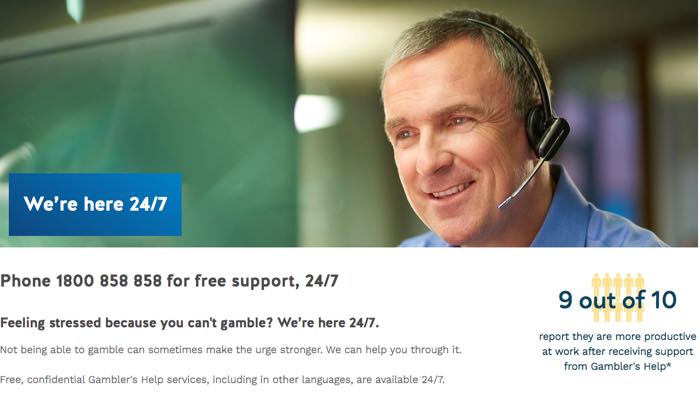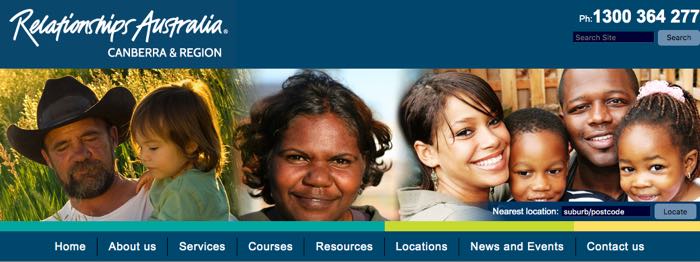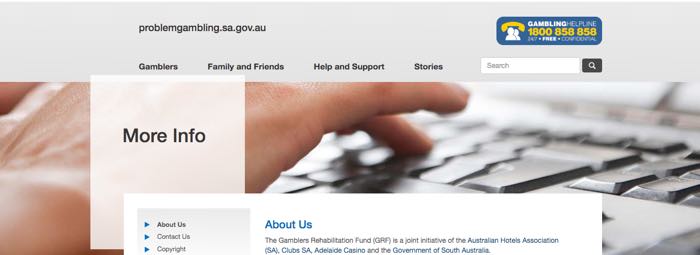Responsible gambling is a tested and proven method of minimizing the risks of gambling. When you gamble responsibly, you gamble within the limits of your bankroll. Also, you gamble for entertainment alone, with money you can afford to lose.
The latest data reveals that Australian gamblers are losing more money than gamblers from other countries. Gamblers are not losing that much even in Las Vegas, widely acclaimed as one of the major gambling destinations of the world.
A 2017 study reveals that Australia’s gambling loss per capital was US$958 that year, closely followed by Hong Kong’s per capital loss of $758.
How Much Do Australians Lose?
Let’s have a look at the latest statistics to get an idea of exactly how much Australians lose every year and why they need to adopt responsible gambling policies.

According to the Australian Gambling Statistics (35th edition), published by the Treasury of Queensland, Australian players spent over $242 billion in gambling activities in 2017 – 18 and $208 billion the previous year. Since there are 19.75 billion Australians above the age of 18, one can calculate that each Australian spent over $12,000 in gambling activities that year.
Let us examine the numbers in detail:
| Type of Gambling | Total Amount Spent | Amount Spent Per Capita |
| Horse Racing | $25.8 billion | $1,340 |
| Casinos and Pokies | $181.4 billion | $9,419 |
| Sports Betting | $11.6 billion | $603 |
Of course, Australians did not lose all the money they placed as bets. Some of them would have recovered their bets in the form of winnings. But nevertheless, Australia’s total gambling loss was close to $25 billion, which translates into per capita gambling loss of $1,260 every year. And what’s worse, this figure keeps increasing at the rate of 5% every year.
| Type of Gambling | Total Gambling Loss | Loss Per Capita |
| Horse Racing | $3.5 billion | $177 |
| Casino Games and Pokies | $20.1 billion | $1,017 |
| Sports Betting | $1.23 billion | $62 |
Gambling losses are not only personal but also social. According to a Victorian Problem Gambling Foundation study conducted in 2014 – 15, problem gambling costs Australia $7 billion.
These costs can be broken down as follows:
| Cost | Issue |
| $2.2 billion | Problems related to relationships and family |
| $1.6 billion | Psychological issues such as depression, violence, distress, and violence |
| $1.3 billion | Financial loss |
| $1.1 billion | Costs related to regulation, research, and problem gambling support |
| $600 million | Work-related costs such as loss of productivity |
| $100 million | Costs related to gambling crimes |
The above figures apply only to Victoria and the countrywide social gambling loss will definitely be more. Uncontrolled gambling leads to addiction, mental and emotional distress, loss of productivity, relationship issues, and a rise in crimes.
Here are some more interesting statistics released by the Australian Institute of Family Studies:
- 39% of the adults in Australia gamble regularly.
- Lotteries are the most popular games in Australia (76%), followed by scratchcard games (22%) and electronic gambling machines (21%).
- 54% of the gamblers in Australia are men.
- People with university degrees and living with their families spent lesser on gambling.
- In 2015, 1.39 million Australian gamblers admitted that they had at least one problem related to gambling.
- Members of low-income families spent a greater portion of their household income on gambling that members of high-income families.
Government’s Attempt to Promote Responsible Gambling
Recently, the government introduced three measures to minimize the negative effects of gambling on its residents and to promote responsible gambling policies.
- Established the National Consumer Protection Framework for online gambling
- Amended the Interactive Gambling Act (IGA) of 2001 to deal effectively with unlicensed offshore online gambling sites
- Empowered the Australian Communications and Media Authority (ACMA) to investigate and block access to offshore online casinos
- National Self-Exclusion Register – The piece of legislation that provided for the establishment of the National Self Exclusion Register received approval on Dec 12, 2019.
If you feel that you have become a problem gambler, you can use the register to exclude yourself from all licensed gambling services in Australia through one simple procedure.
The law also gives the ACMA the required powers to supervise the industry and make sure that it complies with the latest self-exclusion laws. - Customer Verification – The government also enacted new customer verification laws on Feb 26, 2019. These laws reduced the verification period for new customers from 90 days to 14 days. Efforts are on to further reduce the verification time to 72 hours.
- Crackdown on Offshore Online Casinos – The government is continuing its crackdown on unlicensed offshore online casinos that target Australian customers.
The latest amendments to the IGA give the ACMA the power to investigate complaints against offshore online casinos and direct ISPs to block them.
The ACMA has found that most of these casinos fail to comply with industry standards related to responsible gambling, safety & security, customer support, and payouts.
Guide to Responsible Gambling
As we previously mentioned, the only way to minimize the risks of gambling and to keep the activity enjoyable is to gamble responsibly.

The following are some ways to achieve this:
- Gamble only with money you can afford to lose, not money you have saved for essentials such as medicine, food, education, rent, and so on.
- Avoid spending all your free time in gambling. Spend quality time with friends and family members. Focus on your hobbies too.
- Never gamble with borrowed funds.
- As far as possible, avoid using credit cards to fund your gambling account.
- Avoid gambling after taking alcohol or drugs.
- Don’t gamble to escape from psychological issues such as anxiety, depression, or boredom.
- Set win/loss, gambling session, and deposit limits to control the time and money you spend on gambling activities.
- Avoid opening multiple accounts at online gambling sites.
- Use player protection tools at online casinos to control your gambling habits.
Do you feel that you have become a problem gambler? Here are some signs of a problem gambler:
- Borrows or steals money to gamble
- Feels irritated or restless when he/she is not gambling
- Makes unsuccessful attempts to quit gambling
- Spends most of his/her waking hours thinking about gambling
- Gambles whenever he/she feels upset or anxious
- Chases losses endlessly
- Makes every possible attempt to hide the fact that he/she gambles
- Prioritizes gambling over friends, family members, job, or studies
Every online gambling site that supports responsible gambling encourages its customers to request self-exclusion and seek help if they feel that they have lost control over their gambling habits. You can even close your account if things get too bad.
If you need help with compulsive gambling, here is a list of Australian organizations that can help you:

- Gambling Help NSW – Gambling Help is an initiative of the Government of New South Wales funded by the NSW Office of Responsible Gambling’s Responsible Gambling Fund.
It is one of the several measures of the Office of Responsible Gambling to maintain a responsible, safe, and secure gambling environment for NSW gamblers. - Gamblers Help Victoria – The services available at Gambler’s Help include telephonic, online, and personal counselling, information, and advice given by several community organizations located in Victoria.
You can visit Gambling Help Online if you are a problem gambler living in New South Wales, Australian Capital Territory, Northern Territory, Western Australia, South Australia, Queensland, and Tasmania. - ACT Gambling Counselling and Support Service (AGCSS) – This is a free service that includes online, telephonic, and personal counselling for problem gamblers. The AGCSS also helps players to self-exclude from land-based and online gambling services. You can call 1800-858-858 to talk to an experienced counsellor.
- Problem Gambling Help SA – This is the home of the Gamblers Rehabilitation Fund (GRF), a joint venture of the Government of South Australia, Adelaide Casino, Clubs SA, and Australian Hotels Association (SA).
Launched in 1994, it funds initiatives and programs that aim to curb problem gambling and provide support to problem gamblers. The GRF’s Gambling Help Services include the 24/7 helpline 1800-858-858, research and evaluation, and community education programs. - Gambling Help Queensland – A free support service funded by the Government of Queensland, Gambling Help Queensland offers counselling to problem gamblers, community training and education programs, and networking activities that helps enhance awareness and understanding of problem gambling and responsible gambling.
- Gambling Help WA – Centre Care is a non-profit Catholic community services organization comprising 300+ staff members who deliver 70+ high-quality and professional training, mediation, support, and counselling services through Goldfields, Western Australia, Esperance, and Perth.
- Amity Community Services – This is a non-government organization that provides a variety of services with addictions. If you need instant help or support, you can call the 24/7 helpline 1800-858-858 or get live counselling at Gambling Help Online or obtain self-help tools or email support.
- Gamblers Help – Gamblers Help in Tasmania helps problem gamblers and their friends and family members. Support is available round the clock every day.
You can also gain access to anonymous support, resources and information regarding gambling, counselling through chat or email, self-help and self-assessment tools, and telephonic support.
Read also: Gambling Regulation in Australia.